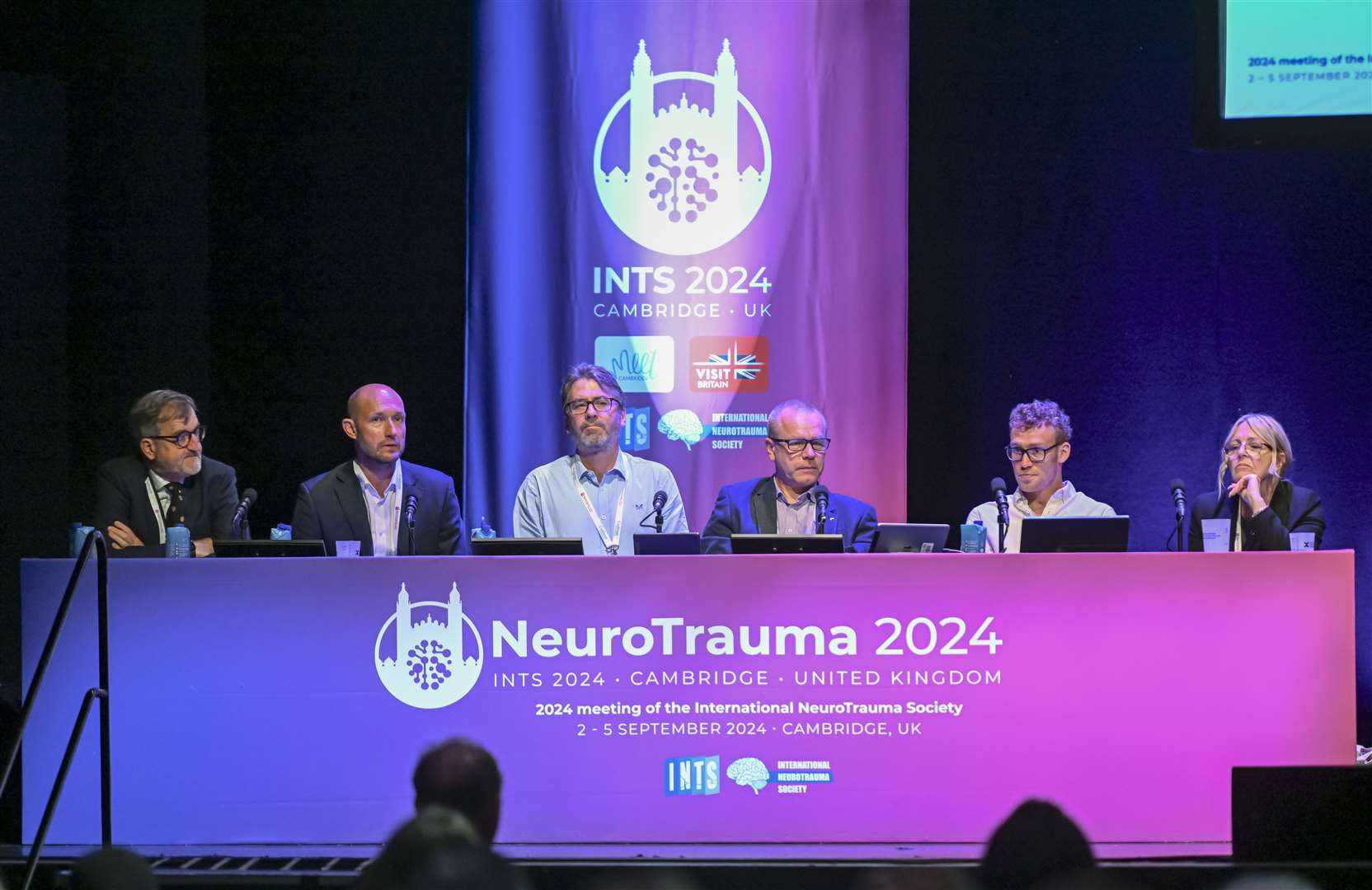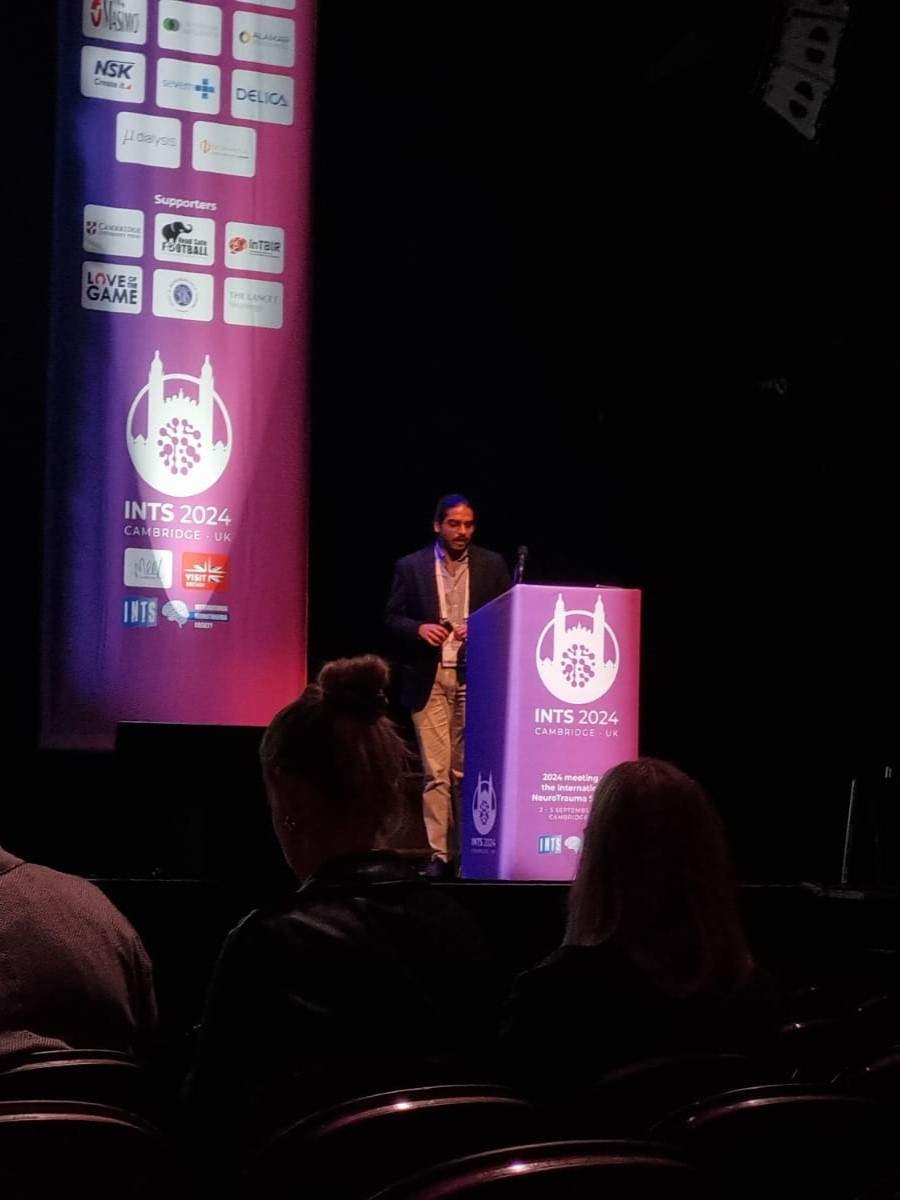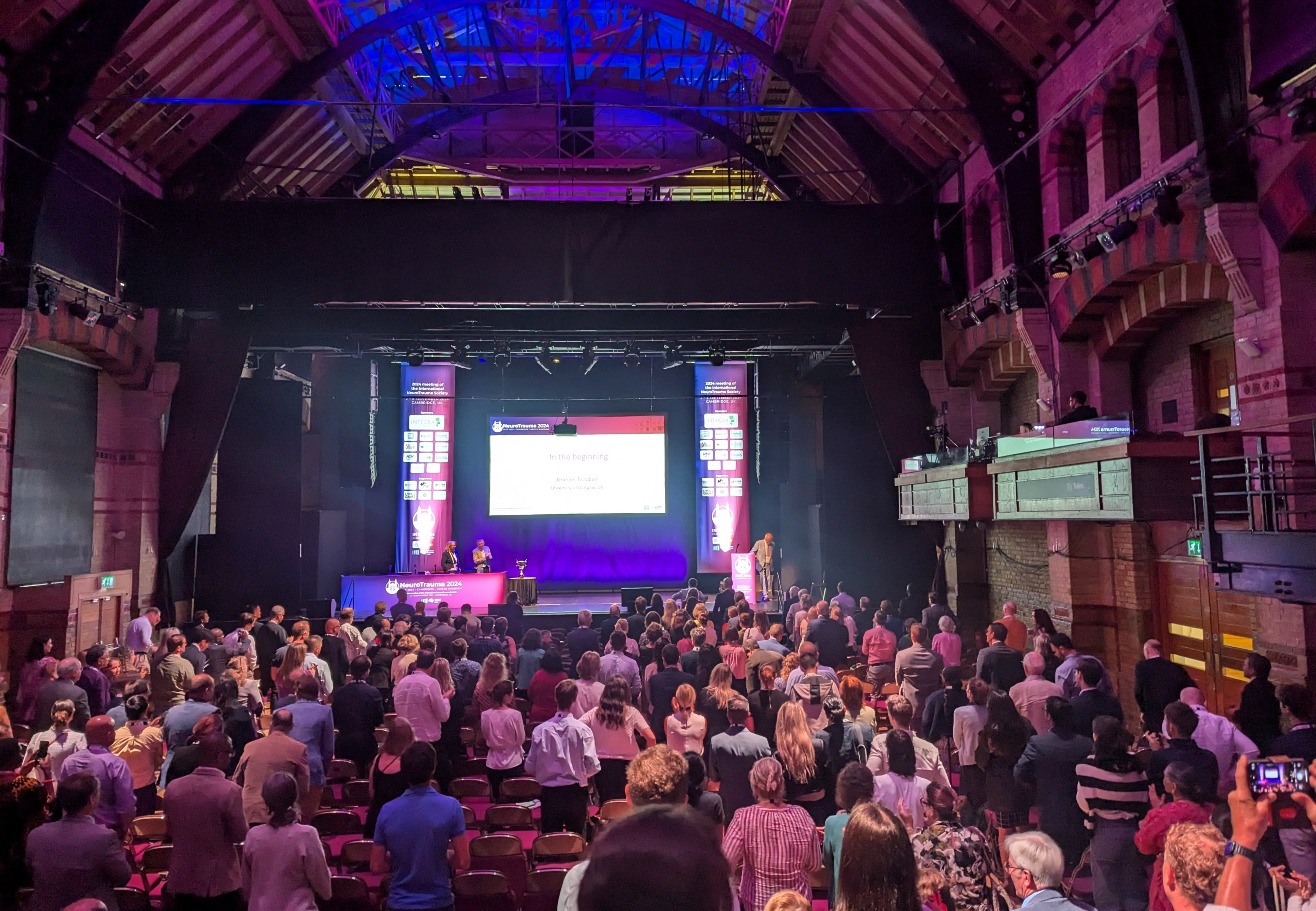A Transformative Year: Reflections from the Inaugural NRF John Crowley Scholar
Reflections from the Inaugural NRF John Crowley Scholar on the 2024 International Neurotrauma Symposium

As the inaugural recipient of the NRF John Crowley Scholarship, Dr Abhiram had the opportunity to attend the 2024 International Neurotrauma Symposium (INTS) in Cambridge—a pivotal moment in a year defined by academic progress, international collaboration, and deep personal growth.
“I am deeply grateful to the Crowley family and the Neurosurgical Research Foundation for their generous and ongoing support,” Abhiram writes. “Their funding was instrumental not only in advancing our research into traumatic brain injury (TBI) and chronic subdural haematoma (CSDH), but also in supporting my attendance at INTS.”

At the symposium, Abhiram presented his NRF-funded research on the global stage through an oral presentation, engaging directly with international leaders in neurotrauma. His program of work spans three key areas:
- Evaluating Rotational Thromboelastometry (ROTEM) in acute TBI
- Investigating coagulation abnormalities in CSDH
- Mapping the proteomic landscape of CSDH specimens
“These projects sparked significant academic interest,” he notes, “paving the way for new collaborations with Cambridge University Hospitals and the SAHMRI Proteomics Facility.” These partnerships have already led to a Medical Research Future Fund (MRFF) grant submission and multiple manuscripts, one of which is currently under peer review.
Beyond the academic program, INTS allowed Abhiram to reconnect with mentors he first met during a neurosurgical placement at Addenbrooke’s Hospital in late 2023. “Their ongoing guidance has played a central role in shaping my current work—including the application of nnUNET to develop an AI-based model for automated quantification of traumatic intracranial haemorrhage,” he explains.

He also undertook hands-on training in ICM+ software for high-resolution intracranial pressure (ICP) analysis and built new connections with clinical collaborators at Monash University. Meanwhile, his commitment to mentorship has grown: “Their encouragement has inspired me to involve and mentor medical students in our research,” he says.
As the research program nears major milestones, Abhiram reports strong recruitment figures:
- 295 patients enrolled in the acute TBI cohort
- 70 patients in the ROTEM-CSDH study
- 50 CSDH specimens successfully analysed via ELISA
“Thanks to the support of the NRF and the Crowley family, our program has grown in scope, depth, and reach,” he reflects. “Their generosity has enabled not only scientific progress, but personal development and capacity-building through national and international engagement.”
Outside of the NRF-funded work, Abhiram spent a month at the Weill Cornell Microneurosurgery Laboratory in New York, undertaking complex cadaveric dissections with the endoscope and neurosurgical microscope. “This experience deepened my passion for neurosurgery and strengthened my resolve to contribute meaningfully to the field,” he shares.
In January, he was appointed Honorary Clinical Lecturer at the University of Adelaide, followed by a neurosurgical rotation as an intern at Flinders Medical Centre. He remains on track to complete both his junior medical officer training and PhD by 2026.
Looking forward, Abhiram is eager to pursue further international opportunities while continuing to give back. “I would be delighted to volunteer my time to support the work of the NRF in any capacity,” he says.
“Thank you again for your ongoing support—not only of our research—but of hopeful early-career clinician-scientists like me striving to build a future in academic neurosurgery.”




